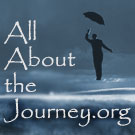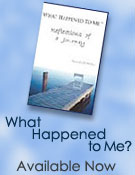| |
"There is nothing either good or bad,
but thinking makes it so."
(Hamlet)
_______
Nearly half of "Busters" (people born between 1965 and 1983) recently said that ethics and morals are based on "what is right for the person." When asked to describe how they make moral and ethical choices, less than half of Busters (including just one-third of those in their twenties) said they follow a set of principles or guidelines.8
That's quite a statement on moral relativism in our current generation!
Indeed, the latest statistics are correlating nicely:
- 82% of high school students admit they lie to parents about "significant" things.
- 60% admit to cheating on exams.
- Nearly half admit to drinking alcohol.
- Nearly one-third admit to shoplifting.9
- A majority of teens do not define downloading free music as wrong.
- A majority of teens do not define plagiarism from the Internet as wrong.10
Remarkably, a 2002 Zogby poll showed that 75% of American college professors teach that there is no such thing as right and wrong. Rather, they treat the questions of good and evil as relative to "individual values and cultural diversity."11
History declares that personal ethics are a product of home, school, and church. If those institutions are increasingly fractured and diseased, is it any wonder that ethical crisis continues at the corporate level?
Simply, personal ethical culture underlies corporate ethical culture. Without strategic intervention, the great ships of capitalism could be drifting towards legal/moral/ethical collapse.
_______
"Only a madman could maintain that the distinction between the honorable and the dishonorable, between virtue and vice, is a matter of opinion, not of nature."
(Cicero)
Read more: Institutional Crisis
____________________________________
8The Barna Group, "A New Generation of Adults Bends Moral and Sexual Rules to Their Liking," October 2006. www.Barns.org.
9The first four statistics come from a survey of 35,000 high school students by Michael Josephson, "The Biennial Report Card: The Ethics of American Youth," Josephson Institute of Ethics, Survey 2006. www.JosephsonInstitute.org.
10The last two statistics come from Marianne Jennings, "An Ethical Breach by Any Other Name," Financial Engineering News, January/February 2006.
11www.allaboutphilosophy.org/moral-relativism.htm; referencing a 2002 column from Fox News analyst Bill O'Reilly, "Why is it wrong to be right?"
|
|

"The reputation of
a thousand years
may be determined
by the conduct
of one hour."
– Japanese proverb

 
|